Datura / Datura stramonium / is a shrub of the nightshade family. It has a branched stem that is purple to dark green.
The leaves are broad, reaching a length of 7.9″ (20 cm), its green fruits are egg-shaped, as large as a walnut and have spikes. When the fruit matures, it is split into four parts, each of which contains red seeds.
When cut, these seeds emit an unpleasant odor. Datura blooms during the months of May to September. It is widespread at up to 3280 ft (1000 meters) altitude. It is found in the wild in America.
Datura is one of the most beautiful plants for planting on terraces and balconies. Its bent, sometimes hanging flowers have a funnel, tube or trumpet shape, and can reach up to 19.7″ (50 cm) in length, and at night they emit an intoxicating aroma.
The herbaceous forms of datura reproduce using seeds. It is sown in February, being transplanted repeatedly. It blooms in flower beds or large pots. The perennial forms of Datura can be propagated by cuttings from spring to autumn.
In winter, store it in a cool place with moderate watering. It can be kept in a dark and cold place – as low as 39 °F (4 °C) with little watering, but such plants bloom later in the spring, and they need a deep pruning in the spring.
Datura plants are very toxic, and are used as an unpleasant alternative to cannabis and other illegal drugs, but the proper dose for bringing about hallucinations is different for each individual. Even a few micrograms in excess can lead to death.
Composition of datura
The whole plant, but especially the seeds, contain the tropane alkaloids atropine, scopolamine, hyoscyamine. The composition of the plant also includes coumarins, phenolic acids. It contains alkaloids such as tannin, keratin, daturin. They are mainly found in the seeds and flowers.
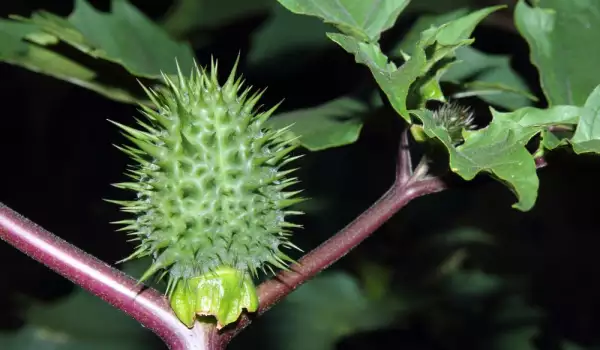
Collection and storage of datura
The plant grows in abandoned places and ruins, often found as a weed in towns and villages. The seeds and roots of datura are used, which are harvested in autumn, dried and stored in a dry and ventilated area. It can be purchased from specialized herbal shops.
Benefits of datura
Application of datura is relatively limited due to its strong toxic effect. Datura has analgesic and antispasmodic action, due to the phenolic acids, coumarins and tropane alkaloids. Datura is applied in cases of spasmodic coughs, migraines, and in rare cases bronchial asthma.
Datura leaves are used for headaches, neurasthenia, paralysis, cerebral blood flow, drowsiness, epilepsy, mental illness, hiccups and more. Daturin derived from datura, is an alkaloid contained in the stramonium drug - a drug that is taken by asthmatics to relieve attacks of bronchial asthma.

Datura is prescribed for whooping coughs, Parkinson's disease, severe anxiety, stomach pain. Externally, it is used in rheumatism, sciatica and various swellings. In the past, datura leaves were smoked as a remedy against suffocation and tuberculosis.
Datura in external applications is used for massages for rheumatism, swelling. For this purpose, the seeds of datura are soaked for 7 days in a strong brandy, in a 1:10 ratio.
For internal applications - 1 2/3 cups (400 ml) of boiling water is poured over 1 tsp of finely chopped leaves of datura. Soak for 1 hour. Drink 1 tablespoon of the resulting potion 3 times a day, before eating.
Dangers of datura
The datura plant is poisonous and should not be taken without prescription. It should not be taken by people suffering from glaucoma. Datura poisoning causes dry mouth and difficulty with swallowing, enlargement of the pupils, rapid heart rate, hallucinations, incoherent speech, agitation, rapid breathing, diarrhea. When applying emergency aid to the suffering person, give them a mixture of charcoal, strong tea and English tea. Admission to a hospital is mandatory.
Do not take datura without prescription and supervision. At the first signs of poisoning, seek medical advice immediately!
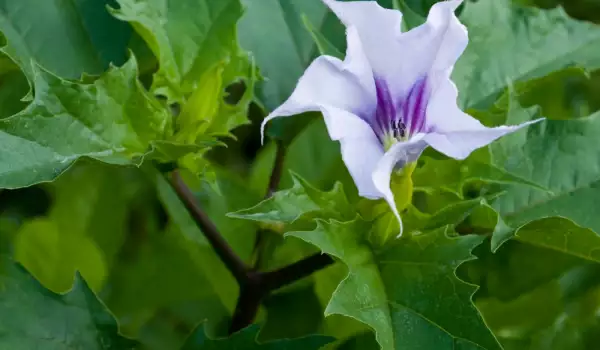
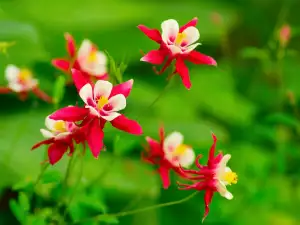
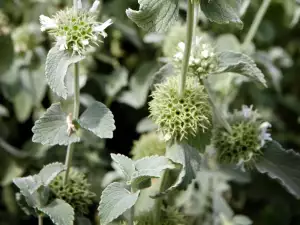
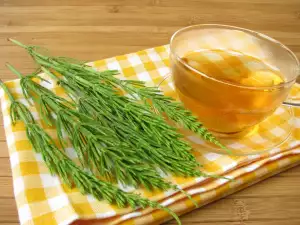
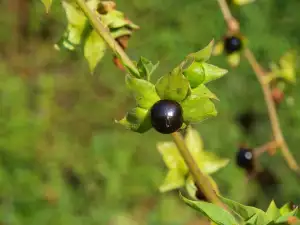
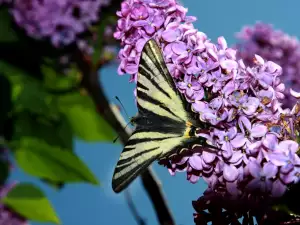
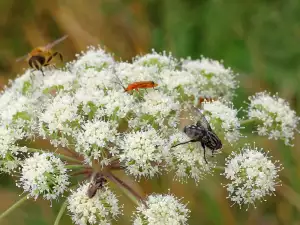
Comments